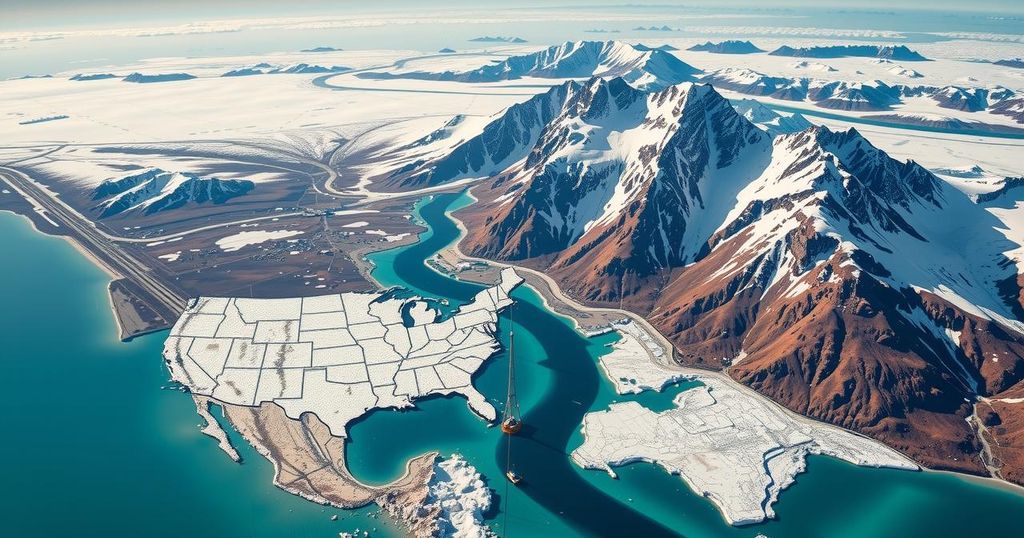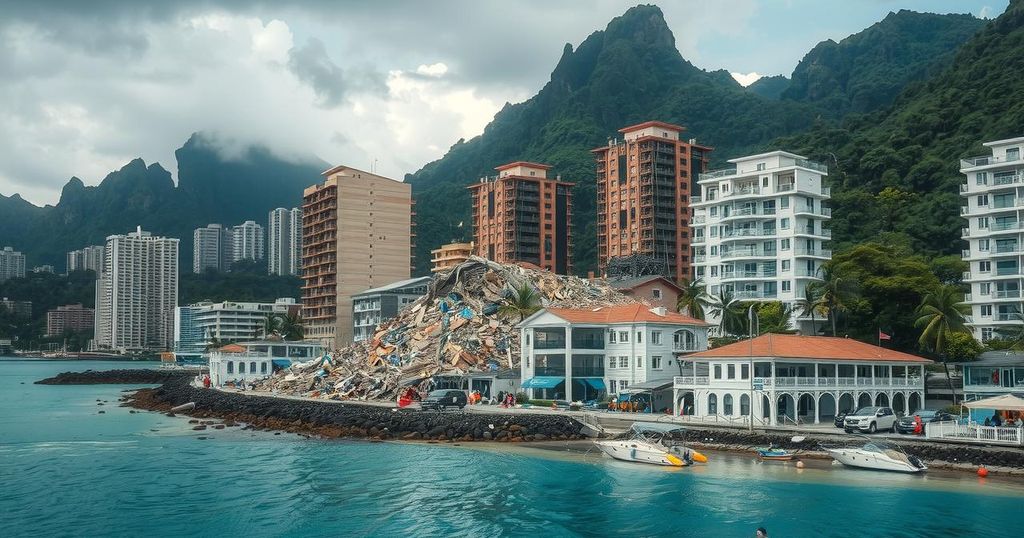Analyzing Trump’s Proposals on Panama Canal, Canada, and Greenland
Donald Trump has proposed the U.S. retake control of the Panama Canal, criticizing Panama’s tolls and expressing concerns over Chinese influence. In Canada, he jokingly suggested it could become the 51st state due to border security issues, while reaffirming past interest in acquiring Greenland, a rich territory in natural resources. These discussions reflect strategic priorities and complex international relations during his presidency.
In recent discussions, President-elect Donald Trump has reignited debates surrounding the ownership and control of the Panama Canal, suggesting that the United States should reclaim it from Panama, which has regulated it since 1999. He criticized fees charged by Panama, branding them “exorbitant” and implying a threat to U.S. interests within the strategic waterway. Trump alleged that China is gaining influence over the canal, expressing concerns about foreign control of a vital U.S. asset. Despite Trump’s remarks, Panama’s leadership has firmly rejected the idea of relinquishing control, emphasizing that the canal belongs to the Panamanian nation.
Moving to Canada, Trump has made light-hearted yet pointed comments about Canada potentially becoming the 51st state of the U.S., particularly in the context of border security and tariffs on imports from Canada. He has threatened a 25% tariff on goods if Canada does not strengthen its border enforcement, provoking responses from Canadian officials, including Prime Minister Justin Trudeau. Trump’s satirical imagery and jokes regarding Canada’s status may reflect serious underlying issues in U.S.-Canada relations.
Lastly, Trump’s interest in Greenland has resurfaced, a territory rich in resources that he attempted to purchase during his presidency. Despite clear rejections from Denmark and Greenland’s authorities, this desire aligns with his broader national security narrative. As he poses questions about territorial acquisitions, both his approach towards Canada and suggestions about the Panama Canal underscore a growing apprehension regarding U.S. global influence amidst rising threats, particularly from China.
The Panama Canal is an essential maritime passage, significantly reducing travel distance between the Pacific and Atlantic Oceans, which was opened by the U.S. in 1914. Control over the canal transitioned completely to Panama in 1999 following a 1977 agreement. Trump’s commentary reflects ongoing geopolitical tensions, especially regarding U.S. interests in relation to China. Meanwhile, his comments about Canada and Greenland illustrate broader themes of American expansionism and security concerns. As the U.S. navigates relationships with its neighbors, these discussions underscore the complexities of territorial and economic policy.
In conclusion, Trump’s provocative musings regarding the Panama Canal, Canada, and Greenland not only highlight his administration’s perspective on national security but also reveal significant underlying tensions in international relations. His threats regarding the Panama Canal did not gain traction within local governance, while his comments on Canada also merit scrutiny regarding economic policies. Meanwhile, the persistent interest in Greenland underscores the strategic value of Arctic resources, indicating a long-term vision for U.S. influence in global affairs.
Original Source: m.economictimes.com




Post Comment